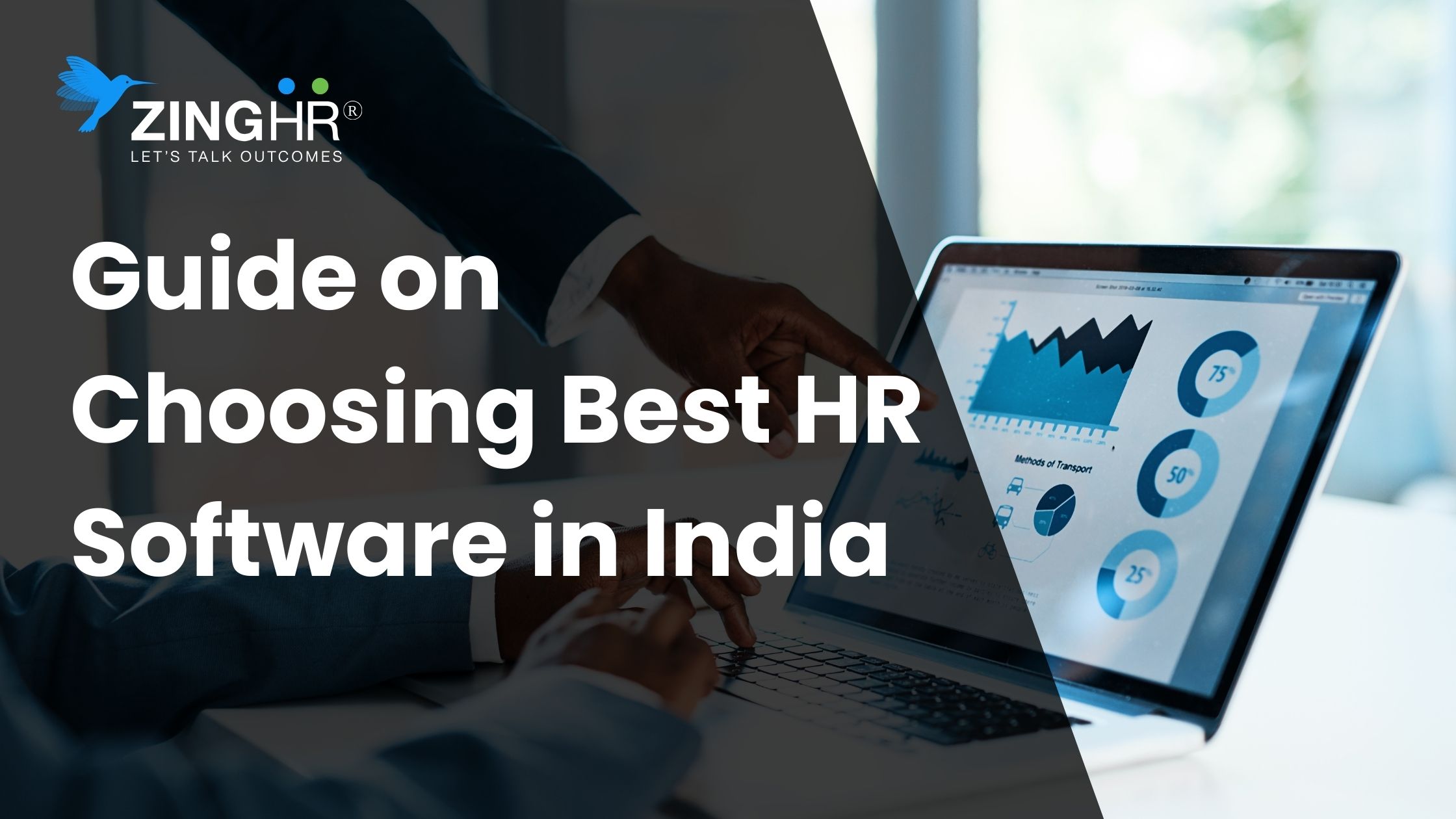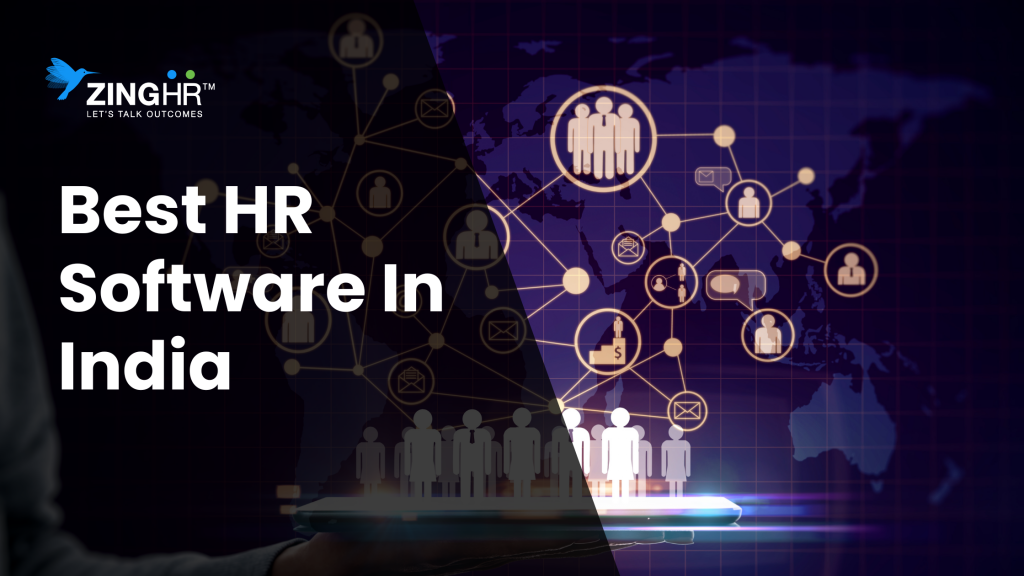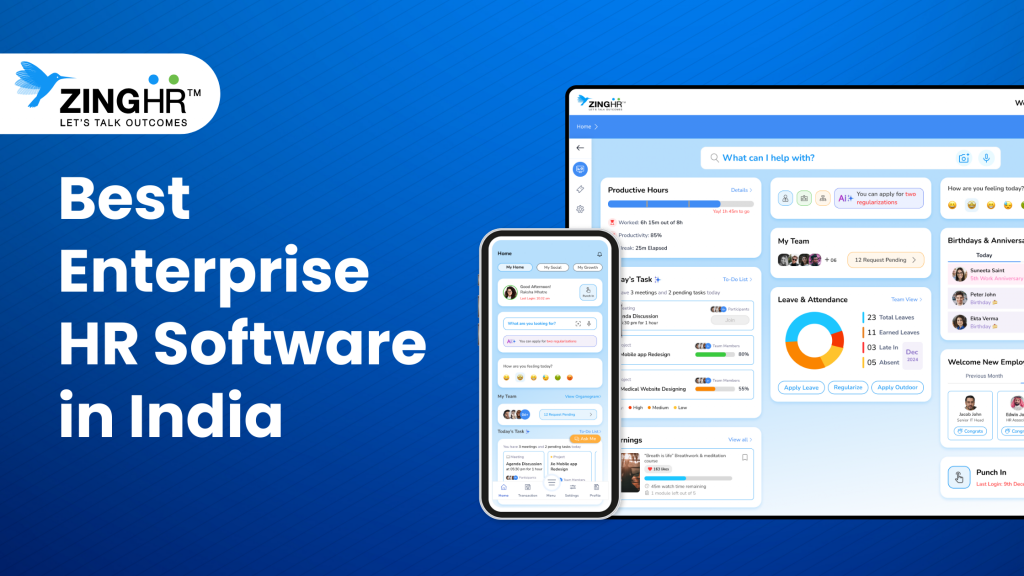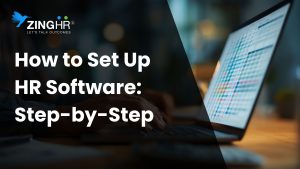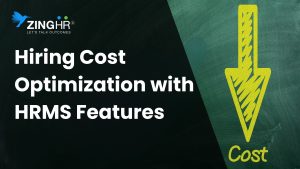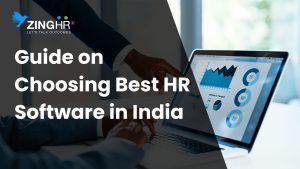Why HR Software Matters in Today’s Indian Business
Efficient HR management has become essential in today’s fast-changing business landscape. Organisations in India, from startups to large enterprises, are increasingly shifting away from manual HR processes because they are slow, time-consuming, and prone to errors.
This shift has created a strong need for choosing the right HR software that can streamline HR tasks, improve employee experience, and enhance overall productivity. Modern HR solutions allow companies to manage payroll, attendance, hiring, performance, and engagement from a single platform, making HR operations far more efficient.
The advantages of HR software are not just limited to the automation of payroll or the tracking of attendance. The top HR software solutions give the user a single and comprehensive platform to oversee the whole employee life cycle, which includes hiring, onboarding, feedback management, and even ending employment.
Besides that, these systems simplify adherence to Indian labour law rules, such as PF, ESI, and TDS, to a great extent, which greatly reduces the risk of being fined heavily.
The primary goal of this blog is to help HR employees, support payroll departments, compliance officials, CFOs, CHROs, and company managers make the best choice of HR software for their respective organisations.
It will help you to identify the most critical features, compliance requirements, and best practices so that you can make daily HR tasks faster, more accurate, and create the right HR strategies for the workplace to be more efficient.
Key Takeaways
Rapid HR Tech Adoption: Indian companies are fast in adopting HR technology to make their operations more efficient and to keep up with the competition.
Automation and Accuracy: HR automation minimizes human errors and frees up time for more important strategic work.
Data-Driven Decisions: HR analytics software helps organizations make decisions based on data.
Compliance Simplified: The automated calculations and filings ensure easy compliance with the law without any hassles.
Investing in a robust HR system is becoming increasingly critical for emerging Indian companies, as it is now a choice or a luxury, but a necessity.
Understanding HR Software
Efficient HR management has become essential for many Indian businesses that have undergone digital transformation.HR software is rightly viewed as a necessity for the automation and optimisation of HR processes, as the present-day accuracy and speed can not be attained by manual operations.
What is HR Software?
HR software is a smart digital HR solution that centralises and automates key HR functions such as payroll, attendance, workforce data, hiring, and performance management. It removes repetitive manual tasks, reduces errors, and ensures better compliance with Indian labour laws like PF, ESIC, and TDS, helping HR teams work faster, smarter, and with complete accuracy.
- Automates payroll, attendance, recruitment, employee records, and performance monitoring.
- Reduces manual effort and eliminates data duplication or payroll errors.
- Ensures full compliance with PF, ESIC, TDS, and other statutory requirements.
- Provides real-time dashboards for better workforce insights and faster decisions.
- ZingHR is the best HR software for large enterprises in 2025, with AI-powered modules such as Zero-Touch Payroll, Workforce Management, and Talent Management.
Built for enterprise-grade speed, automation, security, and scalability to support high-volume HR operations flawlessly.
Key Modules and Features
An excellent HR software platform generally contains the following vital modules:
- Employee Data Management: All employees’ data is kept in a protected and centralised digital database.
- Payroll and Statutory Compliance: The whole payroll process is automated, and this also assures accurate compliance with PF, ESI, and TDS.
- Leave and Attendance Monitoring: Employee attendance is constantly tracked by the hour, along with their schedule changes and leave applications.
- Recruitment and Onboarding: The whole process is made quicker via automated workflows and document management, thereby providing better management of hiring and induction.
- Performance Management: It is the system that keeps the records of objectives, appraisals, and remarks for improving employees’ quality of output.
- Employee Engagement and Feedback: The application of surveys, appreciation, and communication tools elevates not only the workplace environment but also the spirit of the employees.
- Learning & Development: It is the system that provides skills improvement through training, courses, and tracking of progress.
- HR Analytics and Dashboards: Providing instant clarity and statistical presentations through data that support planning at the company level.
ZingHR: A Complete Hire to Rehire HCM Platform
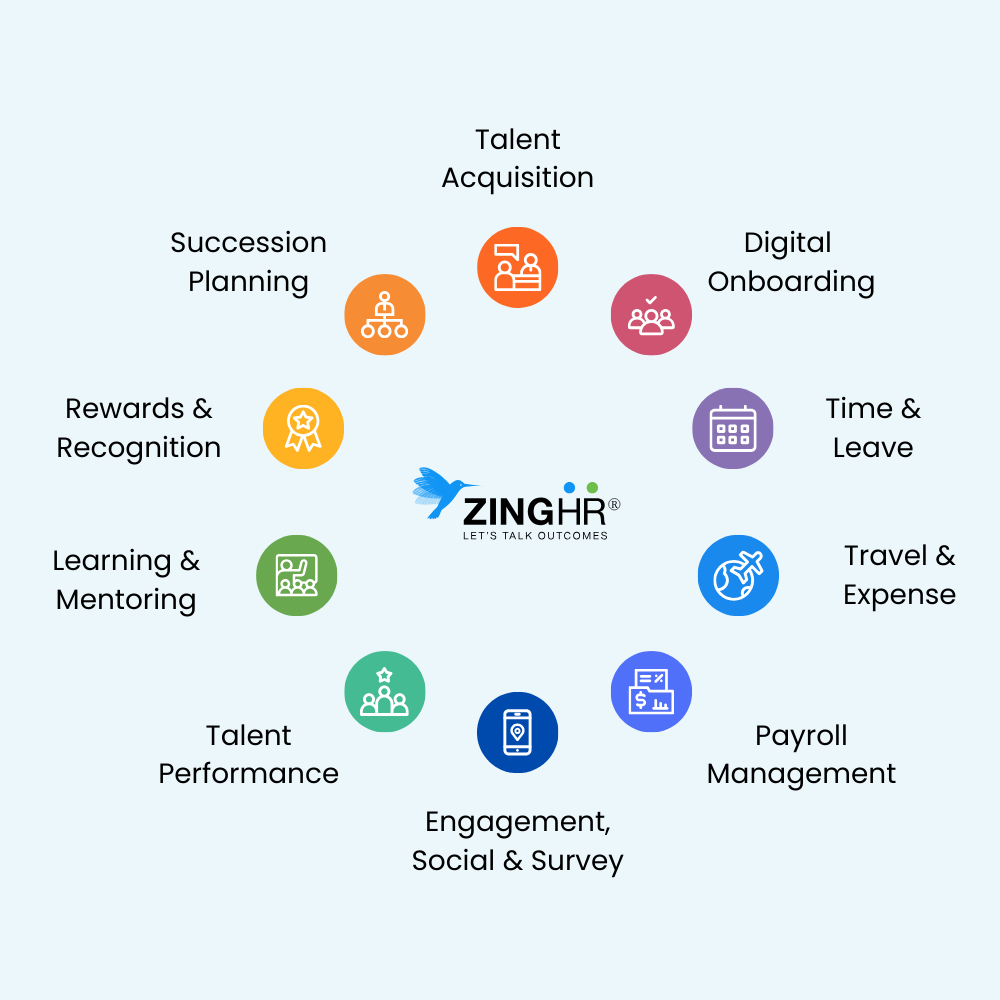
Difference Between HRMS, HCM, and HRIS
To choose the right HR software, it’s important to understand the differences between common HR technology terms.
HRMS (Human Resource Management System): Keeps an eye on and handles administrative HR tasks such as payroll, attendance, and employee performance evaluation.
HCM (Human Capital Management): Considers the management of human capital from a strategic point of view, with talent management, workforce planning, and analytics as the key areas.
HRIS (Human Resource Information System): Primarily manages employee data, compliance, and reporting needs.
The above mentioned assertion implies that one needs to have a clear understanding of these differences and issues to select the most appropriate technology stack that is capable of satisfying the requirements of the organisation.
Your Complete Checklist for Choosing Right HR Software in India
Choosing the right HR software requires a clear and structured process. There are various HR solutions available in the market; hence, businesses have to include the factors of capability, growth, and regulation in their HR platform evaluations.
Below is a detailed guide that illustrates how to make the right choice of HR software for your business.
1. Define Your Organisation’s Needs
Before selecting any HR software, make sure your HR objectives and challenges are clearly defined. Every company has its own unique traits, and the same goes for its HR issues.
Key Considerations:
- Employee Size: The number of employees often determines the complexity of HR functions.
- Organisation and HR Challenges: Identify specific issues like payroll delays, manual onboarding, or a lack of analytics.
- Integration with Existing Systems: Make sure that your current ERP, CRM, or finance software can work together with this.
- Industry-Specific Requirements: Compliance modules particularly built for the respective sectors may be required; healthcare, manufacturing and IT are three such industries.
- Compliance and Localisation: The system should be able to handle Indian payroll and statutory requirements in its functionality.
Understanding your organisation’s needs helps narrow down the list of vendors and ensures better ROI.
2. List Must-Have Modules
Different modules come standard with every human resource software. Prepare a list of necessary features that will cater to your daily HR management as well as your future business plan.
Key Features to Look for in an HR Software
- Payroll Management: It eliminates manual processing of salaries and ensures compliance with no errors.
- Employee Engagement: It encourages internally positive attitudes, intercommunication, and feedback.
- Recruitment & Onboarding: Automated workflows streamline the entire hiring and onboarding process.
- Succession Planning: It helps in recognising and nourishing the coming leaders in your company
- Analytics & Reporting: Allows you a view the workforce’s performance solely through data.
- Performance Management: Monitors in real-time all the goals, evaluations, and conversations.
- Mobile App: Enables employees and managers to access HR services at any time and place they wish.
The core of contemporary HR systems is these modules when choosing the appropriate HR software.
3. Check Reviews on Google and Software Listing Platforms
One of the most reliable indicators of a software’s performance is user feedback. Before making a final decision, be sure to check reviews on platforms such as G2, SoftwareSuggest, Gartner, Capterra, the Play Store, and the App Store.
Pay attention to:
- Ease of use and user interface.
- Customer service responsiveness.
- Feature reliability.
- Integration success stories.
Example:
ZingHR, the top HR software in India, receives excellent reviews for its automation, compliance, and user experience. With its artificial intelligence-powered features, the software ranks among the best HR tools for HR teams handling the management of complex operations.
4. Make a Checklist of HR Software Available in India
Start by narrowing down the HR vendors’ list according to your company size, budget, and functional needs. Comparison among these factors as price, adaptation, growth, legal issues, and support, will reveal the differences. No doubt choosing the most suitable HR software solution for the indian organisation through this methodical process will be a safe bet.
5. Adoption of AI
HR tech platforms use Artificial Intelligence (AI) more than ever. When selecting a vendor, you can give priority to those that utilise AI, blockchain to enhance data security, automation and analytics.
AI in HR Software Can Help:
- Automate repetitive HR tasks like attendance tracking and payroll.
- Predict attrition and employee engagement trends.
- Enable intelligent resume screening during recruitment.
- Provide insights for decision-making.
ZingHR is an Indian HR tech company that was already using AI and blockchain technology to achieve sophisticated workforce management.
6. Request for a Product Demo or Product Tour
Absolutely, it is a very good idea to ask for a hands-on demonstration of the HR software before you decide on the investment. This will help you to evaluate the software in terms of its user-friendliness, customisation options, and functionalities.
During the demo, observe:
- Dashboard layout and navigation
- Real-time analytics and reporting
- Customisation and scalability options
- Mobile app usability
In case you ask for a demo, it will mean that you are taking a knowledgeable decision and also that you are fully aware of the integration of the system into your HR operations.
7. Cost and Pricing Model
The pricing strategies used by vendors of HR software are extremely different from each other. Some firms apply a monthly payment per employee, while others employ a fixed-rate subscription plan.
Important Factors:
- Setup or Implementation Costs: Initial installation and data migration fees.
- Training and Support Charges: Ongoing user training and customer support.
- Add-on Module Pricing: Extra fees for AI, analytics, or integrations.
Remember, total ownership cost is a useful measure when you are trying to make a decision. Opt for transparent pricing and scalability.
8. Reliable Support and Training
Even the most advanced HR software requires reliable post-sales support. Choose a vendor that offers:
- 24/7 customer support.
- Regular system updates.
- Training programs for HR employees.
- Dedicated account management.
Proper support ensures seamless adoption and long-term success.
Major HR Problems Organisations Face in India
Indian business firms of all sizes deal with human resource problems that hold back their growth and productivity. Such problems will be analysed, and the top-rated HR software for HR will be suggested as a remedy for them.
Overcome These HR Problems with HR Software Features
Increasing Manual Workload: Human Resource employees normally invest a lot of their time in performing the same repetitive tasks, which require a lot of administrative work. The adoption of automation not only allows for strategy but also removes all attention from paperwork.
Payroll or Compliance Errors: It is a well-known fact that errors in salary or tax calculations always lead to unhappy workers. Automated HR systems ensure accurate calculations and strict compliance with the regulations of PF, ESI, and TDS.
- Difficulty Managing Remote or Hybrid Teams: It is literally a piece of cake to delineate the duties of everybody and assign them accordingly.
- Poor Employee Engagement: The combination of these tools with HRMS is like an injection of morale into the team and thus, retention of the workforce.
- Hiring Challenges: The recruitment modules streamline the process of job advertising, attracting candidates, and onboarding new employees.
- Manual Work in Onboarding: Once the new employees are automated in companies, all the paperwork, training, and presentations are done automatically.
- High Attrition Rate: By analysing the data, HR departments discover the reasons for turnover, so they can act in a preventive way.
The adoption of HR software would lead to an escalation in the levels of efficiency, compliance, and employee satisfaction within the organisations by overcoming these hurdles.
Recommended HR Software for the Indian Market
To kick off your adventure, here is our careful choice of the 10 best Human Resource software interfaces that are highly regarded by various industries in India as well as other countries:
ZingHR: AI-driven HRMS that delivers automation, analytics, and compliance.
Keka: A system that is easy to use and focuses mainly on employee experience and payroll accuracy.
HRone: The one that has become famous for complex workflows and participation of employees.
Kredily: The free HR software that is the best fit for startups and small businesses.
Pocket HRMS: A mobile-oriented HR system for contemporary teams.
Zimyo: An all-encompassing system with the management of performance and attendance as its main features.
Qandle: A rich functionalities HRMS with a superb level of customisation.
greytHR: A strong payroll and statutory compliance tool.
RazorpayX Payroll: Makes payroll processing easy and quick for new businesses.
Zoho People: Flexible HR suite for hybrid and remote teams.
ZingHR is still one of the finest HR tools for human resource employees overseeing big organisations, thanks to its AI-powered automation and excellent compliance capabilities, among others.
Conclusion
In India, digital transformation is now an important element of HR management. Manual payroll processing, the use of AI in analytics, and all other HR software advancements are among the most significant advantages, which principally increase efficiency, compliance, and employee contentment. However, the selection of the right HR software still needs a cautious review of the organisation’s needs, funds, and growth potential.
This detailed instruction on how to choose the right HR software for the Indian buinsess to make an effective selection that not only increases their productivity but also supports their growth plans. The size of the enterprise does not matter if it is ZingHR for big companies or Keka for mid-sized firms; the adoption of a powerful HR system is the most important element in creating a future-proof, skilled, and engaged workforce.
FAQ
1. Checklist: Before You Finalise Your HR Software
Before making the final call, ensure your HR software includes:
- Design to be cloud-based and mobile-friendly.
- Legal compliance of India (PF, ESI, TDS).
- Complete management of the human resources lifecycle.
- Connection between ERP and finance systems.
- Trustworthy vendor support and training.
This list really helps you in sorting the wheat from the chaff when it comes to the HR software for the very survival of the organisation.
2. What is the cost of HR software in India?
The cost of HR software depends on features, company size, and implementation type.
- HRMS tools Average pricing ₹ 20 – ₹100 per employee per month for basic modules.
- Mid-range plans usually fall between ₹100–₹300 per employee per month and include payroll, attendance, and performance features.
- Enterprise plans with advanced automation, integrations, and analytics can go from ₹300 to ₹800 or more per employee per month.
3. What Makes ZingHR One of the Best HR Software Solutions in India?
The artificial intelligence-driven HRMS, which incorporates hiring, salary, performance, and analytics, is the core of ZingHR’s merit. It not only guarantees but also offers outstanding employee interaction features along with total observance of the Indian labour laws.
4. How Does ZingHR Help Businesses Reduce HR Operational Costs?
ZingHR largely helps companies to minimise the HR operational costs through sophisticated automation in the main HR modules. It takes care of such daily activities as attendance monitoring, payroll calculation, vacation control, hiring, and reporting that require no human intervention at all.
This automation significantly reduces payroll errors, saves time, minimises human effort, and improves overall process efficiency. As a result, organisations experience cleaner functioning of the HR and significant reductions in administrative and operational costs.
5. Is ZingHR Suitable for Small and Medium Businesses (SMBs)?
No, ZingHR is primarily designed for large enterprises with complex HR requirements.
6. How Can I Get a Demo of ZingHR?
A demonstration can be requested directly through ZingHR’s official website. The demo is to take the users on a deep dive, exploring all the features, contributing to the decision-making process of the businesses if the software fits their objectives.

